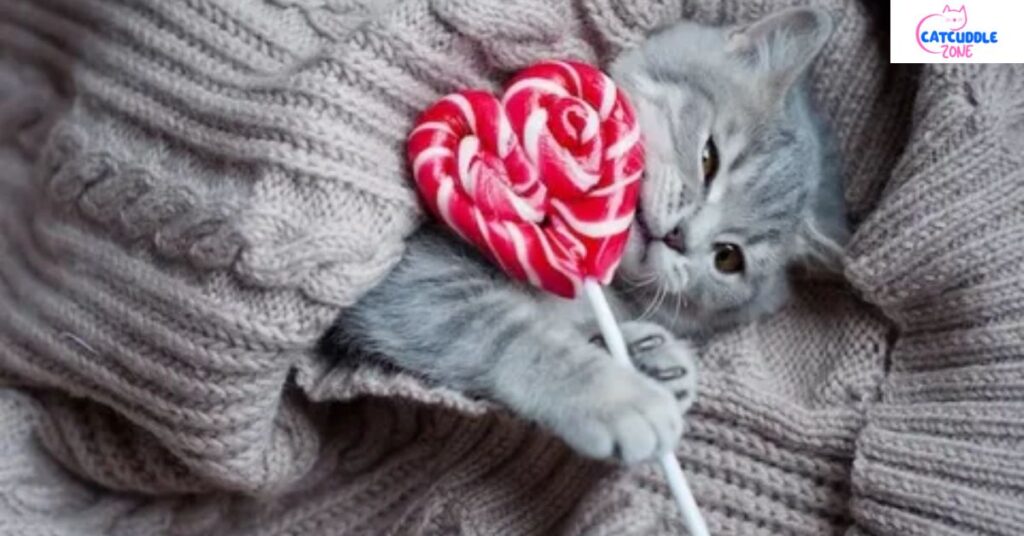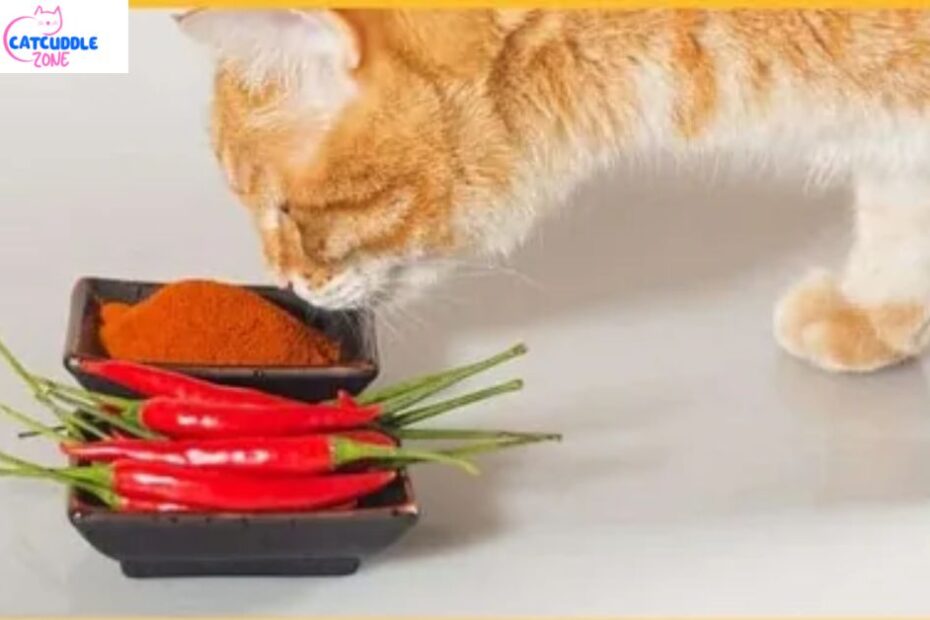Have you ever caught your cat curiously sniffing your plate of spicy food? While their interest seems genuine, the reality of their sense of taste is complex. Unlike humans, cats are obligate carnivores with a completely different biological makeup. This means their experience with food is unique.
The burning question, Can cats eat spicy food, has a fascinating and important answer. Understanding how their taste buds interact with compounds like capsaicin is crucial for every pet owner. This knowledge is the first step in ensuring their safety and well-being.
How a Cat’s Sense of Taste Works
Cats are natural hunters called obligate carnivores. This means they must eat meat to survive. Their bodies are built for a meaty diet. Their taste buds are very different from human taste buds. A person has about 9,000 taste buds. A cat only has about 470. This means cats experience food in a much simpler way. Their few taste bud receptors are perfect for identifying meat and fat. They are not made for enjoying many flavors like people do.
A cat’s world of taste is limited. They can taste things that are salty, sour, and bitter. They especially love the savory taste of meat, called umami. But there is one big taste they completely miss. They cannot taste sweet things at all. This special diet focus is why your cat might not care about your ice cream but will go crazy for a piece of chicken.
Can Cats Actually Taste Spicy Food?
This is a tricky question. Cats do not taste spicy as a flavor. Instead, they feel it as pain. The compound that makes food spicy is called capsaicin. Inside a cat’s mouth are special pain receptors called the TRPV1 receptor. This receptor’s job is to sense heat and pain. When capsaicin touches it, the receptor sends a danger signal to the brain. So, your cat does not enjoy the taste. They feel a burning sensation.
So, can cats eat spicy food? While their tongue can detect the heat, it is a very unpleasant experience for them. It is not like a person who might enjoy the kick of a hot pepper. For a cat, that same pepper just causes confusion and discomfort. Their body is telling them that something is wrong and irritating.
The Science of Spice: Why is Food “Spicy” to Begin With?
Spicy is not actually a taste like sweet or salty. It is a feeling of pain and heat. Plants like chili peppers make capsaicin to protect themselves. This chemical burns the mouths of mammals. This stops animals from eating the plant. It is a brilliant natural defense system.
There is one funny exception to this rule. Birds are completely immune to capsaicin. They can eat the hottest peppers and feel nothing. This is good for the pepper plant. Birds fly far away and spread the seeds in their droppings. So, the plant uses spice to scare away mammals but invites birds to help it grow.
The Sweet Truth: Why Can’t Cats Taste Sugar?
It is true! Cats cannot taste sweets. This is because of their genes. They are missing a key part of their taste bud receptors. The gene that builds the sweet taste sensor does not work in cats. Scientists believe this happened over millions of years of evolution.
Since cats are obligate carnivores, they only ever needed to eat meat. They never needed to search for sweet berries or fruits. Their diet was always based on hunting. There was no reason for them to keep the ability to taste sugar. This is why your cat will never have a sweet tooth.

The Real Danger: Why Spicy Foods Are Bad for Your Cat
Is spicy food bad for cats? Yes, it is very dangerous. The capsaicin is an irritant. It can cause immediate pain in your cat’s mouth. They might drool a lot or paw at their mouth, trying to get the feeling to go away. The problems do not stop there.
After the spice is swallowed, it burns the whole digestive system. This may cause intense stomachache, vomiting, and diarrhea. This is a good indication that your cat is suffering. These strong chemicals are not meant to go in their stomach. They can get quite sick when fed on spicy food.
A Curious Behavior: Why Does My Cat Seem to Love Spicy Food?
This is a common question. Your cat might sniff your spicy chips or seem interested. This does not mean they want the spice. Cats have an amazing sense of smell. They are often attracted to the strong, fatty smells of spicy foods. For example, the grease and meat in a hot wing are very tempting.
The capsaicin itself is not what they want. They are curious about the strong aroma of the fat and protein. Their brain tells them it might be meat. The spice is just an annoying part of the package. This is a case where their curiosity is not good for them.
Emergency Guide: What to Do If Your Cat Eats Something Spicy
If your cat ate something spicy, stay calm. First, take the food away so they cannot eat more. Then, offer them a bowl of fresh, cool water. The water can help wash away some of the spice and soothe their mouth. Do not try to make them vomit.
You must call for help immediately. Contact your veterinarian right away. You can also call the ASPCA Animal Poison Control Center at (888) 426-4435. Tell them exactly what your cat ate and how much. Getting veterinary attention quickly is the best way to help your pet.
Beyond Spice: Other Human Foods Cats Must Avoid
Spice is not the only danger. Many common foods are toxic to cats. You must keep these away from your pet. Foods in the allium genus are very poisonous. This includes onions, garlic, chives, and leeks. They can damage a cat’s red blood cells.
Nutmeg is another spice that is hazardous. It may lead to seizures and issues with the central nervous system. Your cat should never have chocolate, grapes, raisins, or anything containing the sugar substitute, xylitol, as well. Do not hesitate to ask your vet if you are in doubt about a food. It is always safest to consult the vet in matters of cat nutrition.
Final Verdict: Should You Ever Share Spicy Food With Your Cat?
The final answer is simple. Never, ever give your cat spicy food. The risks are far too great. They will not enjoy it and it will likely cause them pain and sickness. Cats are carnivores who thrive on simple, meat-based diets.
The best food for your cat is a high-quality commercial cat food. These foods are made to give them all the nutrients they need. They are safe and healthy. Keep your spicy meals for yourself and give your cat a treat made just for them. This is the best way to show them you care.
Conclusion
Knowing your cat is a way of keeping him or her safe. They may be curious but their taste buds are not geared towards spice. Capsaicin hurts them and may get them extremely ill. Always watch your human food that your cat can access. Your veterinarian should always be called when you have questions regarding what is safe. They are in a position to provide you with the best vet advice on cat eating to have a long and healthy life with your furry friend.
(FAQs)
What happens if a cat eats spicy food?
When a cat feeds on spicy food, it may develop instant pain in the mouth, drooling, and a major stomachache that may result in vomiting and diarrhea. Spicy food contains capsaicin, which is harsh to the digestive system.
What flavor can a cat not taste?
The inability of cats to perceive sweetness is a genetic mutation whereby their sweet taste bud receptors were inactivated. They are also one of the limited number of mammals that are not concerned with sugar at all.
What animal can’t taste spicy?
Birds are unable to sense spiciness since they do not include the TRPV1 receptor that picks up capsaicin. This enables them to consume peppers and dispense seeds free of inconvenience.
What flavors can cats taste?
Cats can taste salt, sour, and bitter, and are particularly fond of umami- the savory flavor on meat. Their palates are sensitive to their existence as committed carnivores.
What flavor is irresistible to cats?
Umami is the savory, rich taste of meat and protein, and the most appealing one to cats. That is why they are inherently attracted to fatty and strong-smelling foods such as fish and poultry.
